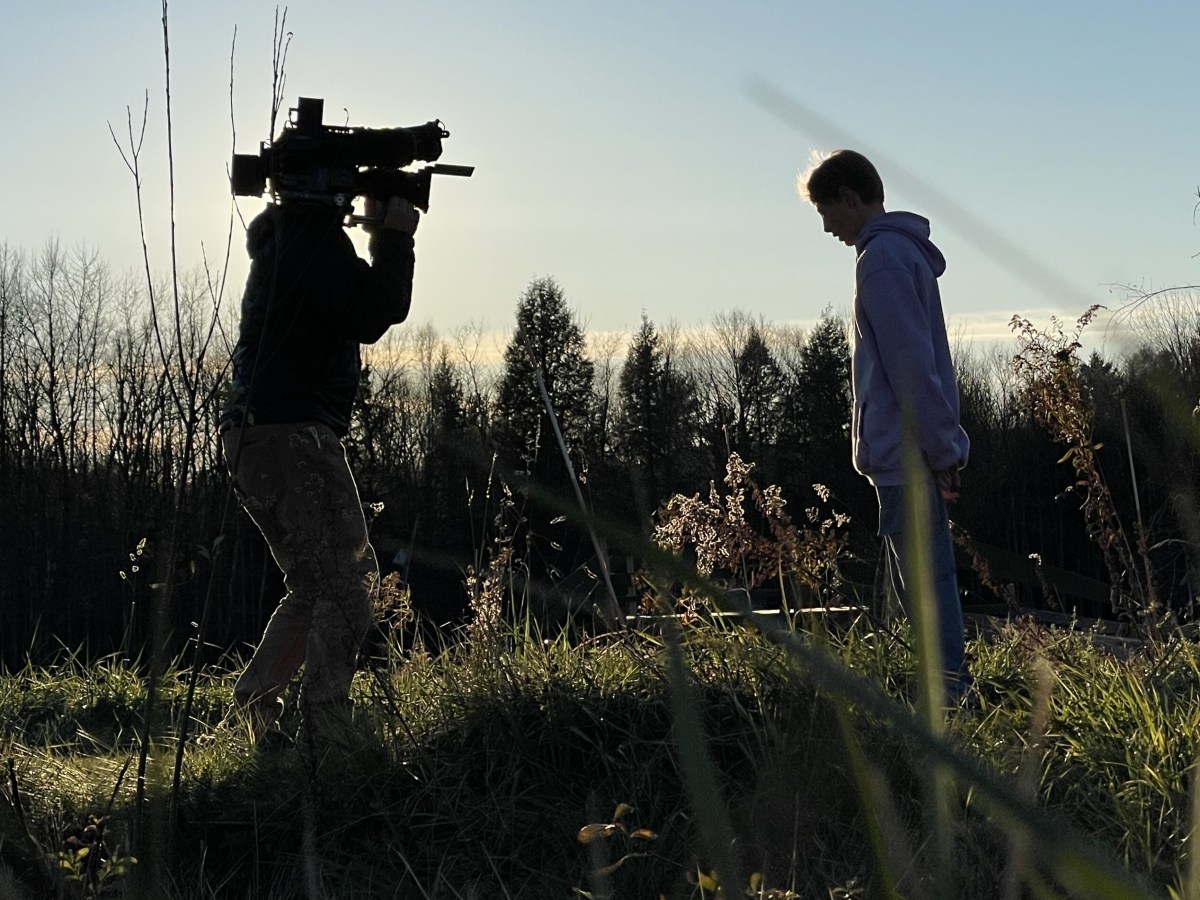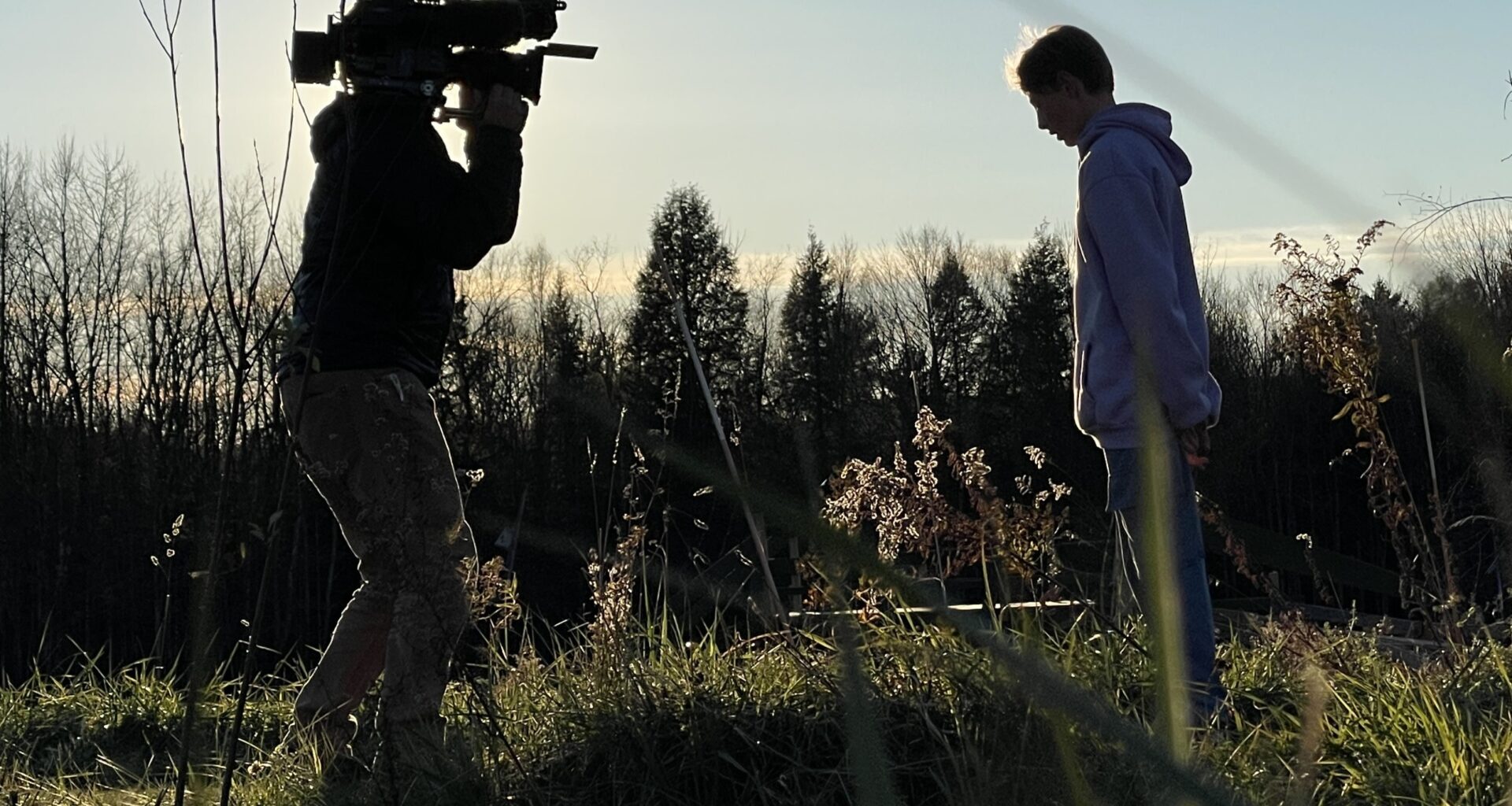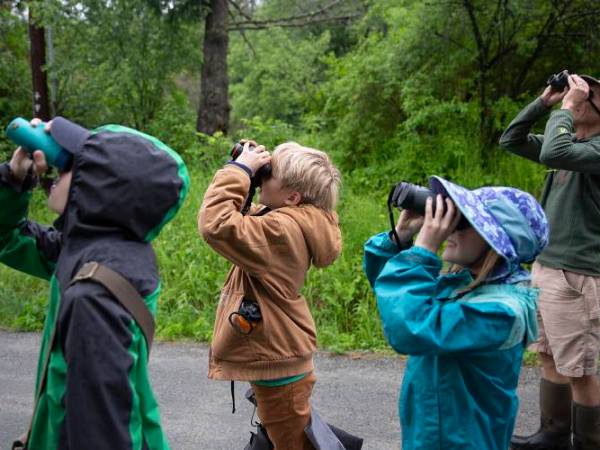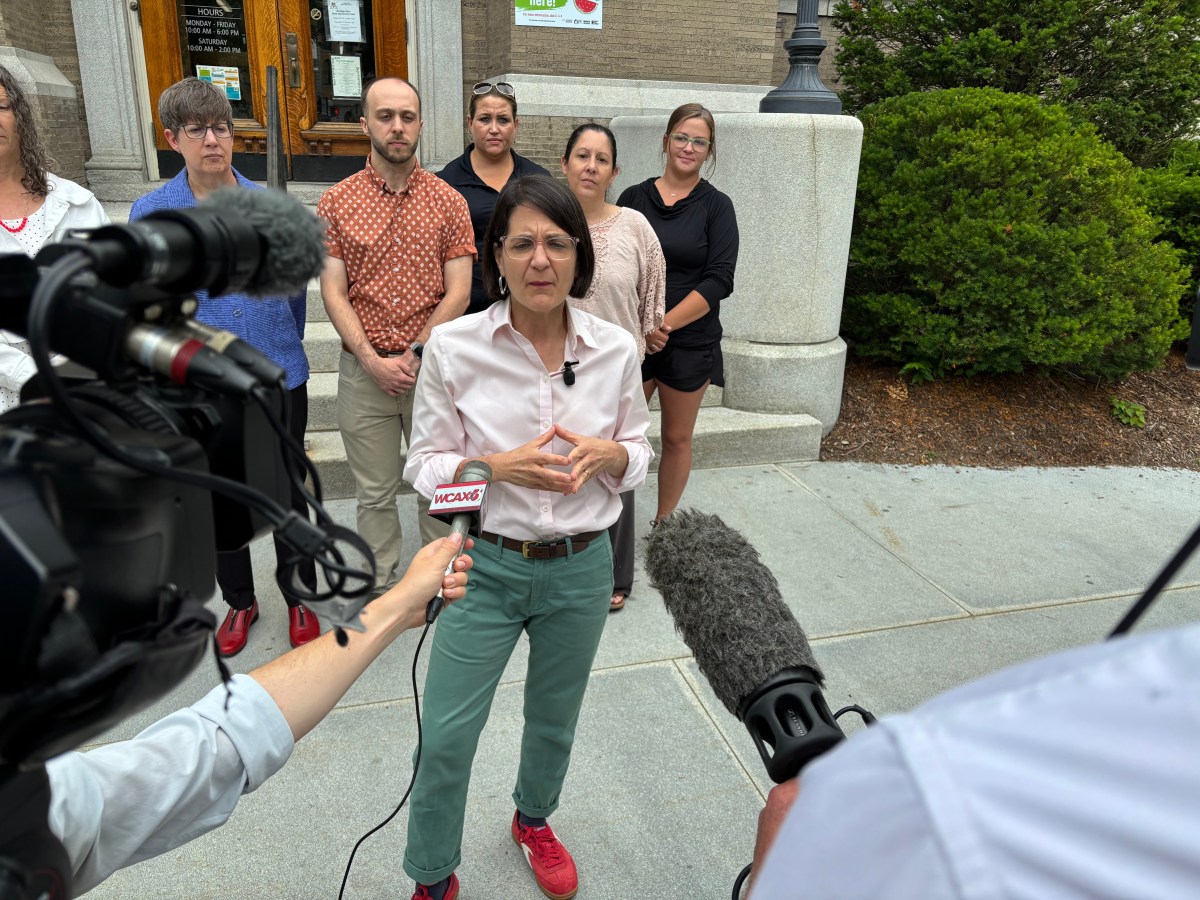 A camera operator from the Montpelier-based Well Told Films talks with a Vermont boy for the new documentary “Gone Guys.” Photo courtesy of Well Told Films
A camera operator from the Montpelier-based Well Told Films talks with a Vermont boy for the new documentary “Gone Guys.” Photo courtesy of Well Told Films
Adjusting 90 pounds of gym weights, a Vermont teenager named Gabe introduced himself to a visiting filmmaker before noting that growing up male could be a heavy lift.
“In my experience in school, like elementary school, I got in trouble a lot,” the boy told the man with a camera and microphone. “I felt very alone, and I just felt no one understood me. I think that a lot of the older generation, they might think that, you know, guys in my generation have much less drive.”
Instead, many boys and young men are struggling with social isolation and consequences such as substance abuse and suicide, state and national statistics show. That’s why the Montpelier-based Well Told Films is set to debut a new documentary, “Gone Guys,” this week to kick off a series of free screenings throughout Vermont.
“Something is out of sync for many boys and young men, and it’s showing up in classrooms, job sites and communities,” Dan Smith, president of the Vermont Community Foundation, said in an interview. “We recognize the urgency and opportunity to create space for people to better understand.”
Smith’s organization has teamed with the state’s Richard E. & Deborah L. Tarrant Foundation to sponsor the 45-minute film and follow-up talks.
“When we began researching this film, the idea of exploring the challenges facing boys and men was often met with confusion,” said its director, Chad Ervin. “But in conversation after conversation, two groups understood our focus immediately: parents of boys and educators. Their reaction was almost always the same: ‘Thank you. It’s about time.’”
Ervin and producer Angela Snow collected data as evidence of what they call a “quiet crisis.”
Men earned 13% more bachelor’s degrees than women in 1970, only to go on to receive 16% fewer degrees than women in the half-century since, according to the National Center for Education Statistics.
Boys now make up only one-third of U.S. high schoolers with the top 10% grade point averages, yet almost two-thirds of students in the bottom 10%, the center says.
The country’s work participation rate for “prime age” men has dropped from 97% in 1960 to 88% today, according to the U.S. Bureau of Labor Statistics. And men total 71% of all opioid deaths, while their suicide rate is four times the figure for women, the Centers for Disease Control and Prevention reports.
The documentary features interviews with Vermont educators, mentors and young men, as well as with Richard V. Reeves, author of the internationally recognized book “Of Boys and Men: Why the Modern Male Is Struggling, Why It Matters, and What to Do About It.”
“We’re landing at a moment when the nation is really starting to talk about this,” said Lauren Curry, executive director of the Tarrant Foundation. “I think this film invites everyone into the conversation.”
Addressing the rise of male disengagement, the online “manosphere” and radicalization, the film doesn’t advocate for any particular solution. Instead, it offers examples such as Montpelier High School’s “Healthy Masculinity” class, the University of Vermont’s “Men & Masculinities” program and the Associated General Contractors of Vermont’s trainings on overdose prevention and mental health.
“We always held firm to the focus of creating a film that seeks to listen to boys and young men and learn from their perspectives and priorities, not preach to them about what they should be doing,” Ervin said.
The film is set to open in St. Johnsbury on Thursday and Friday before moving on to free screenings and discussions in Bellows Falls, Brattleboro, Burlington, Montpelier and White River Junction.
“We must hold two truths at once,” said Smith from the Vermont Community Foundation. “That advancing opportunity for women and girls remains essential — and that boys and young men are struggling in ways we can no longer ignore.”
Latest stories
by Valley News
July 9, 2025, 7:55 pmJuly 9, 2025, 7:55 pm



